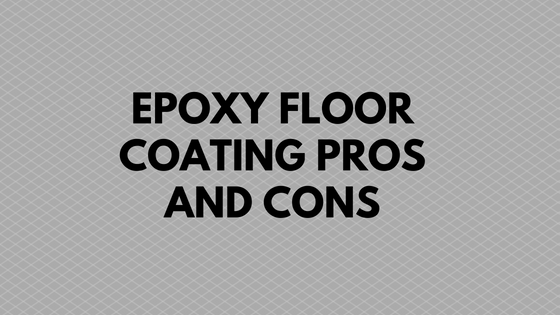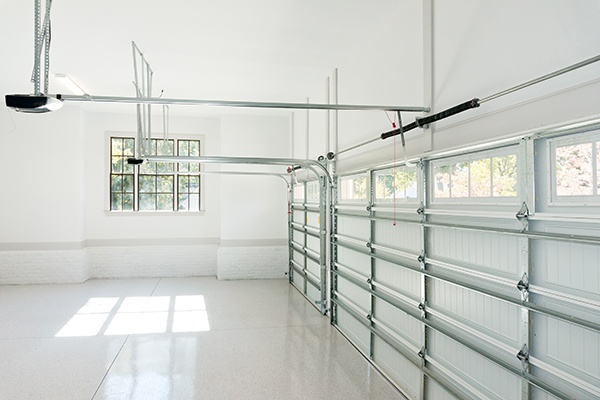Using the right commercial floor coating product will allow you to achieve dust-free flooring that looks beautiful. You can also prevent dust allergens from living beneath the surface, as well as hide cosmetic imperfections. However, this is not a light decision to make and you need to understand the commercial floor coating options. Read on to find out the types of coating and flooring available to you.
Epoxy Floor Coatings
You can highlight a smooth surface with epoxy floor coating. It is mostly stick-proof and easy to keep clean. This type of coating is easy to apply at an even level on any flooring, and some types add a considerable amount of thickness.
You need to be careful, however, as there are many different types of epoxy coating. Numerous options also work well for commercial garage floors, such as each of the following examples: 100 percent solids, mortar, self-leveling, terrazzo and waterborne.
Remember that the initial layer of epoxy coating is thicker than what the final layer will show when you are done. This is because the carrier agents inside the coating product will evaporate once the solution dries on your floor.
Then you have the topcoat. You can use one or two layers of polyurethane coating or clear epoxy. It will improve the strength of your floor and increase its overall thickness. Plus, your floor will sparkle and you avoid a matte look after the topcoat gets done.
Hard Tile Ceramic Flooring
Ceramic is a very hard and durable material. It is resilient against slipping and tends to do well holding up against stains. This works ideally for commercial settings, and with a quality epoxy-coating layer, ceramic flooring will hold up during slushy winters.
The biggest convenience of hard tile ceramic flooring is its waterproof nature. The moisture will not sink into the tile and absorb inside the sub-floor.
However, make sure to understand your limitations when applying epoxy to your hard tile ceramic floors. It is a tricky process, as all the chemical additives must come off your current floor. Then you must sand the tiles to make the floor even before you apply the epoxy coat.
If your tile isn’t worth salvaging, its removal will be a hassle. You need to get a floor leveler or it will be a tedious repair. This all needs to be fixed before you put down the resin floor.
Concrete
Concrete makes your commercial floors durable and strong enough to sustain damage from vehicles and cargo. It’s a desirable material when constructing a garage or warehouse. The industrial sector turns to concrete flooring the most, but it has a place in almost any commercial environment.
The great thing about concrete floors is that you can change your mind whenever you want. It is a flat surface and you can add any type of flooring above, as the concrete floor will serve as a sturdy sub-floor. Add the mixed concrete solutions available on the market and you will have stylish flooring as well.
Putting epoxy onto concrete is easy and it takes well. You can use an anti-slip additive to make sure the floor isn’t slippery when wet. There’s also multi-layer epoxy, which provides an even greater level of durability. For example, you can add quartz into the mixture to create one of the toughest floors around.
Rollout Mats
Rubber mats can make your garage feel complete. You can pick up enough to make a difference for an affordable cost. However, it will not serve as a one-size-fits-all solution for your commercial flooring needs. Unfortunately, rollout mats do not handle being wet very well.
You can buy rollout mats in large sizes, spanning dozens of feet in each direction. This makes it possible to cover most of a room with a single mat. The problem is many of these mats are not very durable. You might notice the material morphing as you drive your vehicle over it, for example.
The advantage of mats is the lack of setup effort. You can plop the mats down and be good to go, while installing tiles requires a deep cleaning and freeing of dust. So, rollout mats work in temporary situations, such as when you need to patch over inadequate flooring as a short-term solution.
Finding the right epoxy coating is not easy. It comes down to figuring out what your commercial space will need. If it gets considerable foot traffic, then an anti-slip solution would be necessary. You can use a non-slip additive, which will prevent any liquid spills from causing your floors to become slippery over time.
Most of the battle comes from deciding on the final thickness level you want for your commercial floors. Thickness is directly related to the solids by volume within your epoxy coating solution. With a DIY kit, you can get up to 50 percent volume solids; 100 percent is possible with a quality epoxy coating product.
We have different commercial floor coatings to choose from. Contact us today to speak with a representative to learn more!

